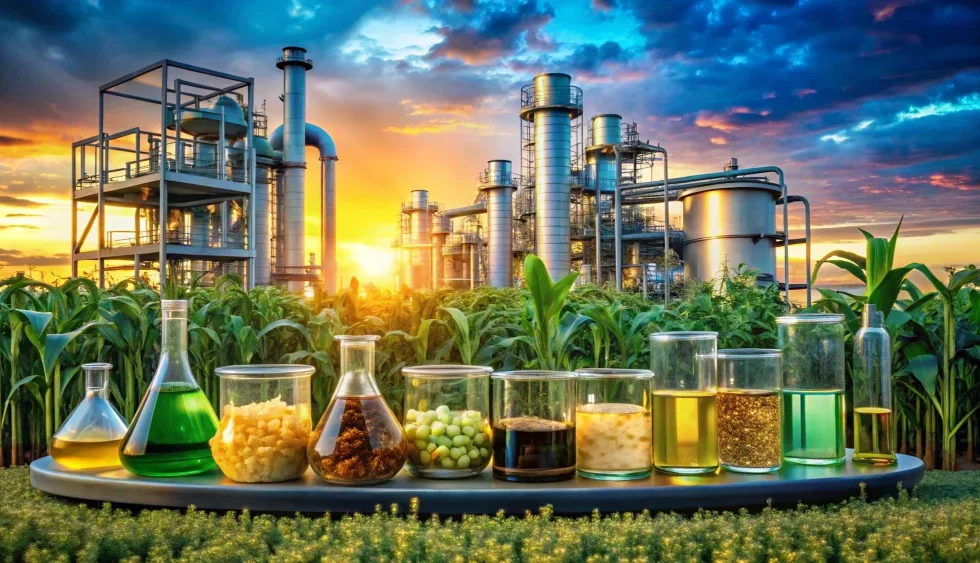Ethanol, a renewable biofuel, is increasingly recognized for its environmental benefits. As the world grapples with the effects of climate change and the need to transition away from fossil fuels, ethanol presents itself as a cleaner alternative that can significantly reduce greenhouse gas emissions and minimize environmental impact. In this blog, we explore the key environmental benefits of ethanol and its potential to help create a greener future.
1. Reduced Greenhouse Gas Emissions
One of the most compelling environmental benefits of ethanol is its ability to reduce greenhouse gas (GHG) emissions. Ethanol, particularly when blended with gasoline, burns cleaner than fossil fuels, emitting fewer pollutants that contribute to climate change.
- Lower Carbon Dioxide (CO2) Emissions: Ethanol is a carbon-neutral fuel. The plants used to produce ethanol, such as corn and sugarcane, absorb carbon dioxide during their growth, which offsets the CO2 released when ethanol is burned. According to the U.S. Department of Energy, ethanol can reduce lifecycle greenhouse gas emissions by up to 43% compared to gasoline.
- Methane and Nitrous Oxide Reduction: In addition to lowering CO2 emissions, ethanol production emits fewer potent greenhouse gases like methane and nitrous oxide, further contributing to reduced overall emissions from the transportation sector.
By replacing or blending with gasoline, ethanol helps to mitigate the harmful environmental effects associated with fossil fuel combustion, which is a major contributor to climate change.
2. Ethanol is a Renewable Resource
Unlike fossil fuels, which are finite and deplete the Earth’s reserves, ethanol is derived from renewable resources such as plants. These crops can be grown and harvested annually, making ethanol a more sustainable long-term energy source.
- Bio-Based Energy Source: Ethanol is produced from feedstocks like corn, sugarcane, and other biomass materials. Since these crops can be replanted every year, ethanol can be continuously produced without exhausting natural resources.
- Crop Versatility: Ethanol production is not limited to just food crops. Second-generation biofuels are being developed from non-food crops and agricultural waste, reducing the pressure on food resources and enhancing the sustainability of ethanol production.
This renewable aspect of ethanol ensures that it will be available as a sustainable energy source for future generations, reducing the reliance on non-renewable fossil fuels that are becoming increasingly scarce.
3. Cleaner Air and Reduced Pollution
Ethanol’s cleaner combustion process contributes to improved air quality, especially in urban areas where vehicular emissions are a major source of air pollution.
- Reduced Harmful Emissions: Ethanol blends produce fewer harmful tailpipe emissions, including carbon monoxide (CO), hydrocarbons, and nitrogen oxides (NOx). These pollutants are known to contribute to smog, acid rain, and respiratory issues in humans.
- Lower Particulate Matter: Ethanol combustion releases less particulate matter (PM), which are tiny particles that can enter the lungs and cause serious health problems. Reducing particulate matter emissions is particularly beneficial in densely populated areas where air quality is a pressing concern.
By reducing these harmful pollutants, ethanol improves air quality, helping to create healthier environments, especially in cities where air pollution is a significant public health issue.
4. Biodegradability and Reduced Environmental Risk
One of the significant environmental advantages of ethanol is its biodegradability. In contrast to fossil fuels like oil, which can persist in the environment for years and cause long-lasting damage, ethanol breaks down quickly and naturally.
- Lower Risk of Environmental Contamination: In the event of a fuel spill, ethanol poses a lower risk of long-term environmental contamination. It dissolves more easily in water and degrades rapidly in the environment, reducing the impact on ecosystems and wildlife.
- Less Toxicity: Ethanol is less toxic than petroleum-based fuels, which reduces the risk to aquatic life and soil quality in the case of leaks or spills. This makes ethanol a safer alternative in industries where fuel transport and storage are common.
The quick breakdown of ethanol in the environment means it poses less of a threat to natural habitats compared to traditional petroleum fuels, making it a safer and more environmentally friendly choice.
Conclusion: Ethanol’s Role in a Sustainable Future
Ethanol stands out as an eco-friendly alternative to traditional fossil fuels, offering numerous environmental benefits, from reduced greenhouse gas emissions to cleaner air and improved energy efficiency. As a renewable resource, ethanol is well-positioned to help meet global energy demands in a sustainable manner, supporting the transition to a low-carbon economy.
While challenges remain, such as the “food vs. fuel” debate and energy input concerns, ongoing advancements in ethanol production and the development of second-generation biofuels promise to make ethanol an even greener and more sustainable solution in the future. With its potential to reduce the environmental impact of transportation and energy production, ethanol is a vital component of the global effort to combat climate change and build a cleaner, more sustainable future.

